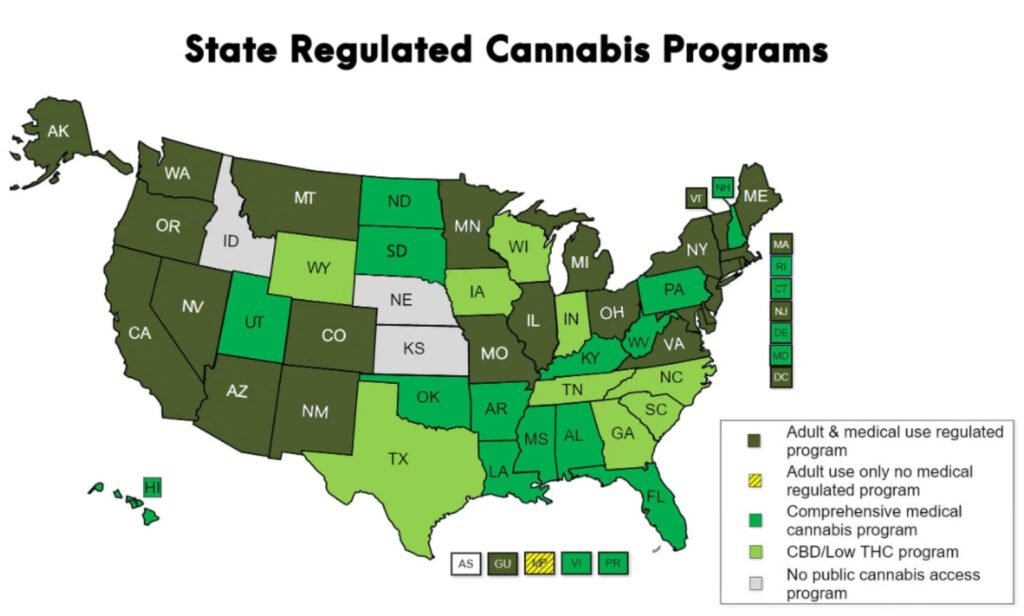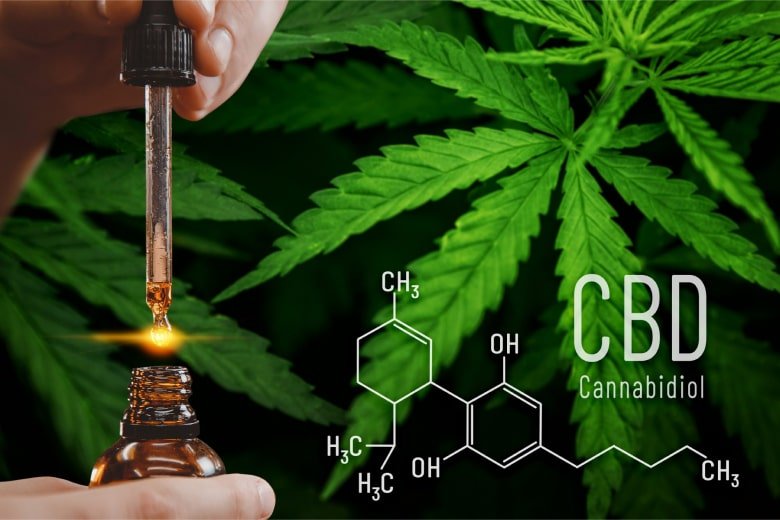Is CBD legal?
The 2018 Farm Bill removed hemp from the legal definition of marijuana in the Controlled Substances Act. This made some hemp-derived CBD products with less than 0.3% THC federally legal. However, CBD products containing more than 0.3% THC still fall under the legal definition of marijuana, making them federally illegal but legal under some state laws. Be sure to check state laws, especially when traveling. Also, keep in mind that the FDA has not approved nonprescription CBD products, and some products may be inaccurately labeled.
In every state except Alaska, Arizona, Arkansas, Colorado, Connecticut, Delaware, Idaho, Iowa, Kentucky, Michigan, Mississippi, Montana, New York, North Dakota, Rhode Island, South Carolina, Utah, Vermont and Washington.
It all depends on how the delta-8 is sourced. As we know, in many parts of the country, delta-9 remains highly illegal. Delta-8-THC is an isomer of CBD, a derivative of hemp and CBD, a cannabinoid found in hemp, and remains legal as long as the final product contains less than 0.3% THC.
Legal Considerations
1.Federal Law:
- Farm Bill 2018: Legalizes hemp-derived CBD products containing less than 0.3% THC. This allows for the transportation of these products across state lines.
2.State Laws:
- Varying Regulations: While federal law permits CBD products with less than 0.3% THC, state laws can be more restrictive. Some states have specific regulations or outright bans on CBD products.
- Checking State Laws: It’s essential for customers to verify the regulations in both the state of origin and the destination state to ensure compliance.

*Map is current on 01/10/2024. Check actual information about the State Cannabis Program State Medical Cannabis Laws (ncsl.org)

